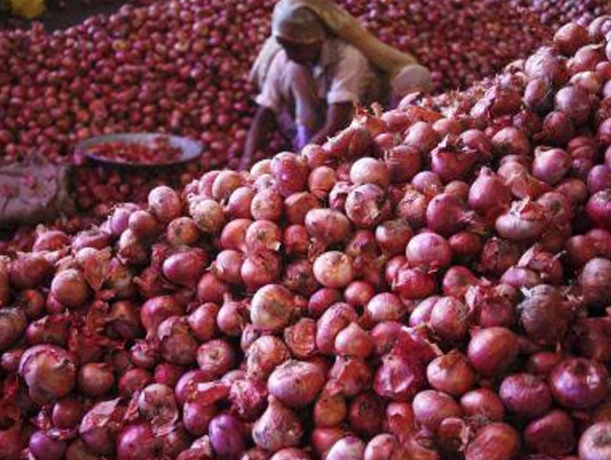By JKNewsMedia
FLOODING, CLIMATE change, and a lack of improved onion seedlings have disrupted onion production in Nigeria, leading to skyrocketing prices and severe scarcity.
The Onion Producers, Processors, and Marketers Association of Nigeria detailed the challenges affecting the onion supply chain.
Since late 2024, onion prices have spiked significantly, with a bag now selling for ₦250,000 to ₦270,000, compared to ₦70,000 to ₦90,000 just months earlier.
A single medium-sized bulb, previously priced at ₦50, now costs ₦500.
The Association’s National President, Mr. Aliyu Isah, attributed the crisis to the widespread flooding of 2024, which devastated onion farms across major producing states, including Sokoto, Kebbi, Zamfara, Kano, Kaduna, Katsina, and Adamawa.
He also noted that the release of water from northern dams, such as Goroyo Dam in Sokoto, and the collapse of dams in Borno State destroyed vast onion farmlands.
“Flooding wiped out our onion farms, causing scarcity,” said Isah.
He added that extended rainfall worsened conditions, creating high humidity that triggered disease outbreaks like Downy Mildew, which ravaged crops at all stages of growth, from seedlings to harvest-ready onions.
In addition to environmental factors, the lack of improved onion seedlings exacerbated the crisis.
Local seed production was disrupted, forcing reliance on hybrid seeds from foreign countries.
Farmers faced further losses when adulterated onion seeds entered the market, producing substandard results.
“Farmers couldn’t access quality seeds even with money in hand,” Isah explained. “Some unpatriotic individuals imported fake seeds, leaving many farmers counting their losses.”
Post-harvest losses due to inadequate storage technology have also played a significant role. “More than 50 per cent of harvested onions are lost because we lack modern storage facilities,” he lamented.
He further noted that the Association is collaborating with the Federal Government to address these challenges.
Efforts include boosting onion seed production and finding long-term solutions to mitigate the effects of flooding and climate change on agriculture, he added.





